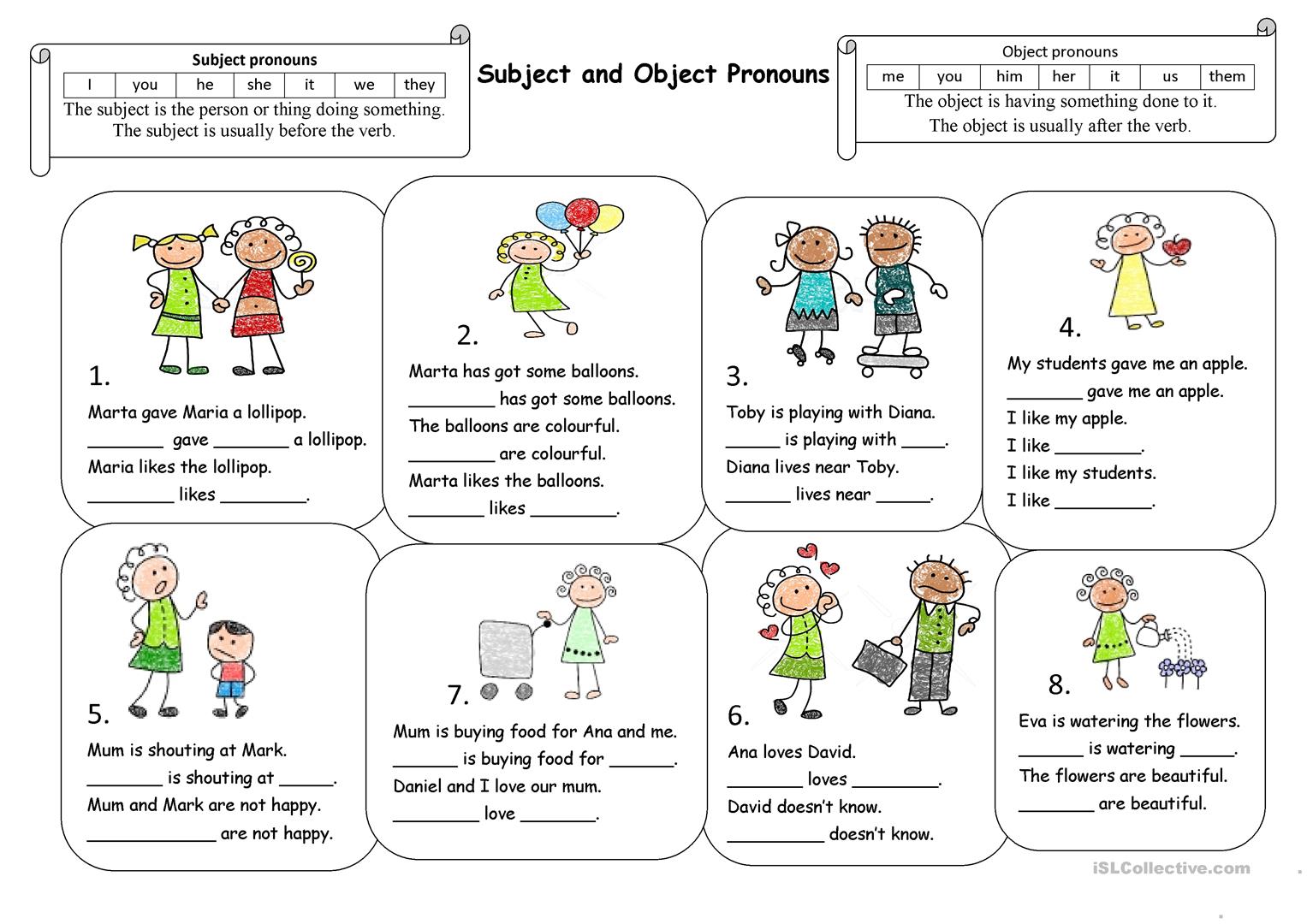
In earlier Old English, both in West Saxon and Anglian dialects, "hīo" was used instead of "hēo". In Anglian dialects, "hēo" was used for feminine and plural nominative and accusative. Third person pronouns refer to another person not involved in a conversation, like Modern English "he", "she", "it", and "they".

In Anglian dialects, "þec", "inċit" and "ēoƿiċ" were used in the accusative instead of "þē", "inc", and "ēoƿ" respectively. Second person pronouns are for the person who is being spoken to, like Modern English "you" (and “thou” and “ye” in dialects). Also in Anglian dialects, "ūser" was sometimes used instead of "ūre". In Anglian dialects, in the accusative, "mec" was used instead of "mē" "uncit" was used instead of "unc" and "ūsiċ" was used instead of "ūs". Since there is a dual number for each set of pronouns, the plural form should only be used for three or more. If used with an adjective or a verb, it should take the same declensions and conjugations as plural. The separate dual number is exceptional and rare. Notice that there is a dual number it means "both" or "two" as in "we both" or "we two". The simple personal pronouns are declined like this:įirst person pronouns are pronouns that refer to the speaker (in singular), or the speaker and other people (in dual and plural), like Modern English "I" and "we". Like nouns and adjectives, pronouns are declined according to case, gender (only sometimes), and number. Also includes negative pronouns - pronouns used to talk about "nobody" or "nothing".

For an example without using any pronouns, see this sentence: However, they are useful because they help avoid repeating the same noun over and over again and they make it easier for a sentence to be understood. They are not a requirement of a sentence, and it is possible for them never to be used in sentences.

They are words like "I", "you", "he", "they", "anybody", "who", and many more. Pronouns are used to substitute for nouns in most speech.


 0 kommentar(er)
0 kommentar(er)
